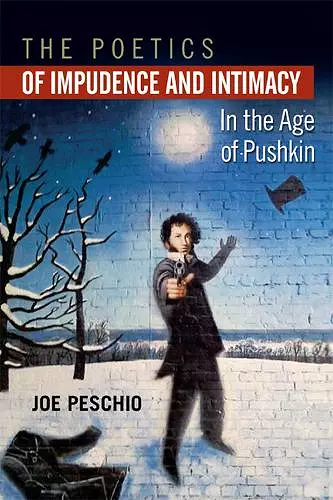The Poetics of Impudence and Intimacy in the Age of Pushkin
Format:Paperback
Publisher:University of Wisconsin Press
Published:13th Feb '13
Currently unavailable, and unfortunately no date known when it will be back

In early nineteenth-century Russia, members of jocular literary societies gathered to recite works written in the lightest of genres: the friendly verse epistle, the burlesque, the epigram, the comic narrative poem, the prose parody. In a period marked by the Decembrist Uprising and heightened state scrutiny into private life, these activities were hardly considered frivolous; such works and the domestic, insular spaces within which they were created could be seen by the Russian state as rebellious, at times even treasonous.
Joe Peschio offers the first comprehensive history of a set of associated behaviours known in Russian as “shalosti,” a word which at the time could refer to provocative behaviours like practical joking, insubordination, ritual humiliation, or vandalism, among other things, but also to literary manifestations of these behaviours such as the use of obscenities in poems, impenetrably obscure allusions, and all manner of literary inside jokes. One of the period’s most fashionable literary and social poses became this complex of behaviours taken together. Peschio explains the importance of literary shalosti as a form of challenge to the legitimacy of existing literary institutions and sometimes the Russian regime itself. Working with a wide variety of primary texts—from verse epistles to denunciations, etiquette manuals, and previously unknown archival materials—Peschio argues that the formal innovations fuelled by such “prankish” types of literary behaviour posed a greater threat to the watchful Russian government and the literary institutions it fostered than did ordinary civic verse or overtly polemical prose.
ISBN: 9780299290443
Dimensions: unknown
Weight: 300g
168 pages